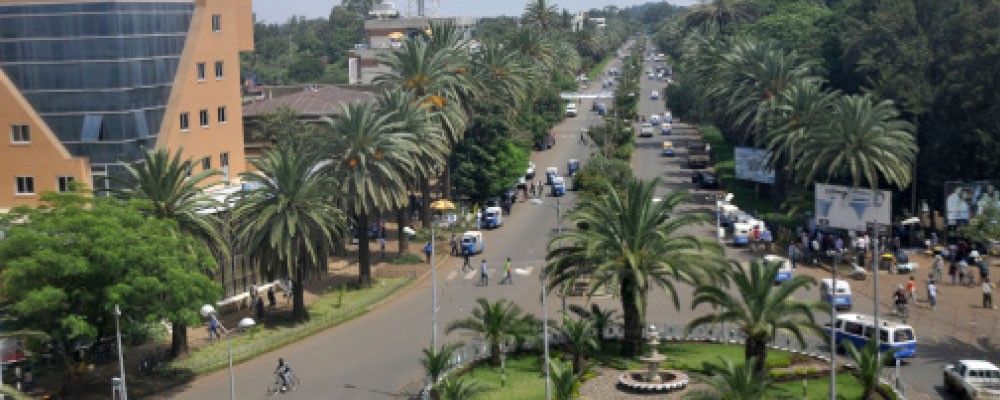Land Acquisition Policy and practice for Cooperative Housing scheme in Bahir Dar, Ethiopia: Toward Affordable Housing Solutions
This document examines the land acquisition policies and practices for cooperative housing schemes in Bahir Dar, Ethiopia, focusing on their effectiveness in providing affordable housing solutions1. The study identifies challenges and proposes strategies for improvement, drawing on interviews with city officials and cooperative members and a review of relevant documents.

Introduction
Rapid urbanisation in developing countries, including Ethiopia, creates a significant demand for affordable housing, particularly for low-income households.
Cooperative housing, where residents pool resources to acquire land and build homes, is a popular approach to address this need5. However, many governments lack the resources to provide affordable housing, which is why self-help housing strategies have become dominant in addressing housing challenges. In Ethiopia, and specifically in Bahir Dar, the capital of the Amhara region, this is a critical issue due to high urbanisation rates and migration from other regions. This study focuses on the land acquisition process for cooperative housing in Bahir Dar, aiming to evaluate current practices and suggest ways to enhance the delivery of affordable housing. The research contributes to the understanding of cooperative housing models and urban land management systems, which can be beneficial for other cities facing similar challenges.
Urban Land Tenure and Access Policy in Ethiopia
Ethiopia’s land tenure system has evolved through three distinct political regimes: the Imperial, Derg, and FDRE regimes11. Before the late 19th century, urbanisation was limited and access to land was restricted to the nobility, clergy, and military.
- Imperial Regime: Land was privately owned by these elite groups, and others could only rent or buy from them.
- Derg Regime: The Derg regime nationalised all land, granting use rights to citizens without the ability to sell, buy, or mortgage.
- FDRE Regime: The current FDRE regime maintains state ownership but introduced a leasehold system for urban land, with lease periods varying from 15 to 99 years depending on the land use. The system aimed to generate revenue and involve private investors, but it initially faced issues such as corruption and speculation. The latest version of the lease proclamation allows land transfers through tender or allotment, with government-approved cooperative housing programs eligible for land at benchmark prices. This system is intended to provide affordable housing options for low and middle-income communities.
Cooperative Housing in Bahir Dar
Bahir Dar has experienced a rapid increase in population which has led to a significant housing shortage, and high demand for land. The city’s cooperative housing scheme, launched in 2013, aims to provide affordable housing through a self-help model. However, the study found that while many have become members of housing cooperatives, only a small fraction have managed to fully construct their homes.
- Policy Framework: The Amhara National Regional State has implemented a regulation to promote affordable housing through cooperatives, specifying requirements for membership, land plot sizes, and construction standards.
- Land Allocation: The municipality is responsible for providing serviced land to certified cooperatives, with priority given to those who registered first. However, delays are common, with some cooperatives waiting over four years for land.
- Challenges: The study notes several challenges with the land plot sizes which are too small at between 100 and 150 square meters, combined with a requirement for G+1 building standards that are too costly for members. The land acquisition system tends to favour high-income groups who can afford to bid at auction.
Land Delivery Practices and Bottlenecks
Between 2014 and 2022, over 31,000 plots of residential land were transferred to cooperative members in Bahir Dar and its satellite towns. However, land allocation was interrupted for four years due to corruption issues.
- Interruptions: There were significant pauses in 2014 due to corruption, and from 2015 to 2017 no cooperatives were formed and certified, except for a few special cases.
- Land Size Changes: The size of land plots allocated was reduced from 150 m² to 100 m² to manage high demand, and then restored to 150 m² in 2022.
- Shortcomings: The land provided is often insufficient, with only about one-third of eligible members securing land, and most of the plots remaining undeveloped due to the high cost of construction36…. The lack of an annual plan for land allocation, delays in land delivery, high building standards, and insufficient financial support for cooperative members, have hindered the scheme’s effectiveness37…. The eligibility criteria and unrealistic building standards also contribute to the scheme not being affordable for the intended beneficiaries.
Improving Cooperative Housing Policy
To enhance affordability and effectiveness, the following changes to cooperative housing policy are recommended:
- Housing Finance: Implement accessible and affordable housing finance options, such as low-interest loans and subsidised mortgages. Lessons can be learned from other African countries where governments provide long-term, low-interest or interest-free loans to cooperative members.
- Bulk Purchases: Facilitate bulk purchases of building materials to lower construction costs for members.
- Digitalisation: Digitalise data, including resident ID cards, to prevent fraud and dual registries.
- Transparency and Accountability: Improve transparency and accountability through regular audits and oversight measures.
- Flexible Building Standards: Avoid unrealistic building standards and promote high-rise buildings to increase land use efficiency, and make more efficient use of the scarce land available. High-rise buildings can accommodate more people in a smaller area, while also helping reduce the cost of land for individual cooperative members by sharing the costs.
- Conclusion The cooperative housing scheme in Bahir Dar has faced significant challenges in providing affordable housing, despite the number of housing cooperatives certified and land plots allocated48. Bottlenecks include overwhelming demand, limited land supply, corruption, and unrealistic building standards. The study emphasizes the need for policy improvements, particularly in housing finance, building standards, and transparency, to provide affordable housing for low- and middle-income residents. By implementing the recommendations, the cooperative housing scheme can become more effective and sustainable.
For further reading:
Land acquisition policy and practice…
